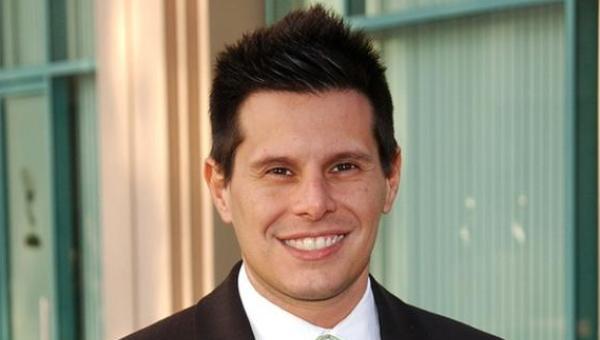According to U.S. media reports, Silvio Horta, the tv producer and screenwriter who led the well-known American drama "Ugly Betty," was found dead at the age of 45 in a motel in Miami.

Silvio Horta
At present, the local police have not yet announced the specific cause of Horta's death, but according to the American entertainment news media "Variety", quoting sources, he committed suicide with a gun. After the news of his death broke, the stars of "Ugly Betty", America Ferreira and Vanessa Williams, both posted photos with him on social media and expressed shock and regret at the news of his death.
Amerika Ferreira posted a group photo of the post-2007 Golden Globe Awards on social media.
Vanessa Williams posted a photo with Horta on social media and expressed shock at his sudden death.
Silvio Horta was born on August 14, 1974, in Miami to a cuban immigrant family to parents who divorced when he was six. As early as the age of 18, when she graduated from high school, Horta, a gay man, bravely came out and enrolled in new York University Film School. After graduating from college, Horta entered the film and television industry as a screenwriter, becoming famous for the 1998 American horror film "Urban Legend". The film, starring Jared Leto, tells the story of a serial murder that takes place on a college campus. Although the filming cost was only more than $10 million, it grossed more than $70 million worldwide, and it is a fairly good quality popcorn youth horror film, and two sequels have been made since.
Since then, Horta has moved to television, working as a screenwriter in the science fiction dramas The Chronicle and Jake 2.0, but what really made him famous was "Ugly Betty", which began in 2006. Adapted from the 1999 Colombian TV series Yo Soy Betty, la fea, Horta transplanted the story to New York City to tell the story of how Betty, the "ugly duckling" played by America Ferrera, overcame her stature and appearance disadvantages to make a difference in New York fashion with confidence and wisdom. From 2006 to 2010, "Ugly Betty" aired on ABC television for four consecutive seasons, winning several Emmy Awards and Golden Globe honors, and Horta herself won the 2007 Writers Guild of America Award for Best New Broadcast. It is worth mentioning that after the popular broadcast of the Colombian version of "Ugly Betty" broadcast on CCTV, the copyright has been sold to Mexico, the United States, Thailand and other places around the world (in 2008, Hunan Satellite TV had purchased the remake rights of the Mexican version of "Ugly Betty" and adapted it into "Ugly Girl Invincible"), and there were many remake versions, and the most famous of them was undoubtedly the American version.
In 2010, the American drama "Ugly Betty" came to an end. After that, Horta signed a two-year contract with Sony Pictures' television production company, but several of the films and television works she wanted to make after that were ultimately not put into production for various reasons. His last successful work was "The Curse of the Fuentes Women," which aired on NBC in collaboration with Warner in 2015, but the show was only filmed in one pilot episode and was never officially aired.
Horta himself had founded a film and television production company called "H Unpronounced Production Company" - in Spanish, the first letter H at the beginning of Horta's surname is not pronounced; however, he always encounters people in life who will mistakenly pronounce it "Horta", so he simply uses it as the name of his company, and Lotte is full of spirit. In 2007, when "Ugly Betty" won the Golden Globe Award for Best Drama Series in a Comedy Series, he said: "Like most of us in the crew, Betty is an immigrant, and we want to let everyone see that the American dream has always been there, and anyone who works hard can succeed." ”